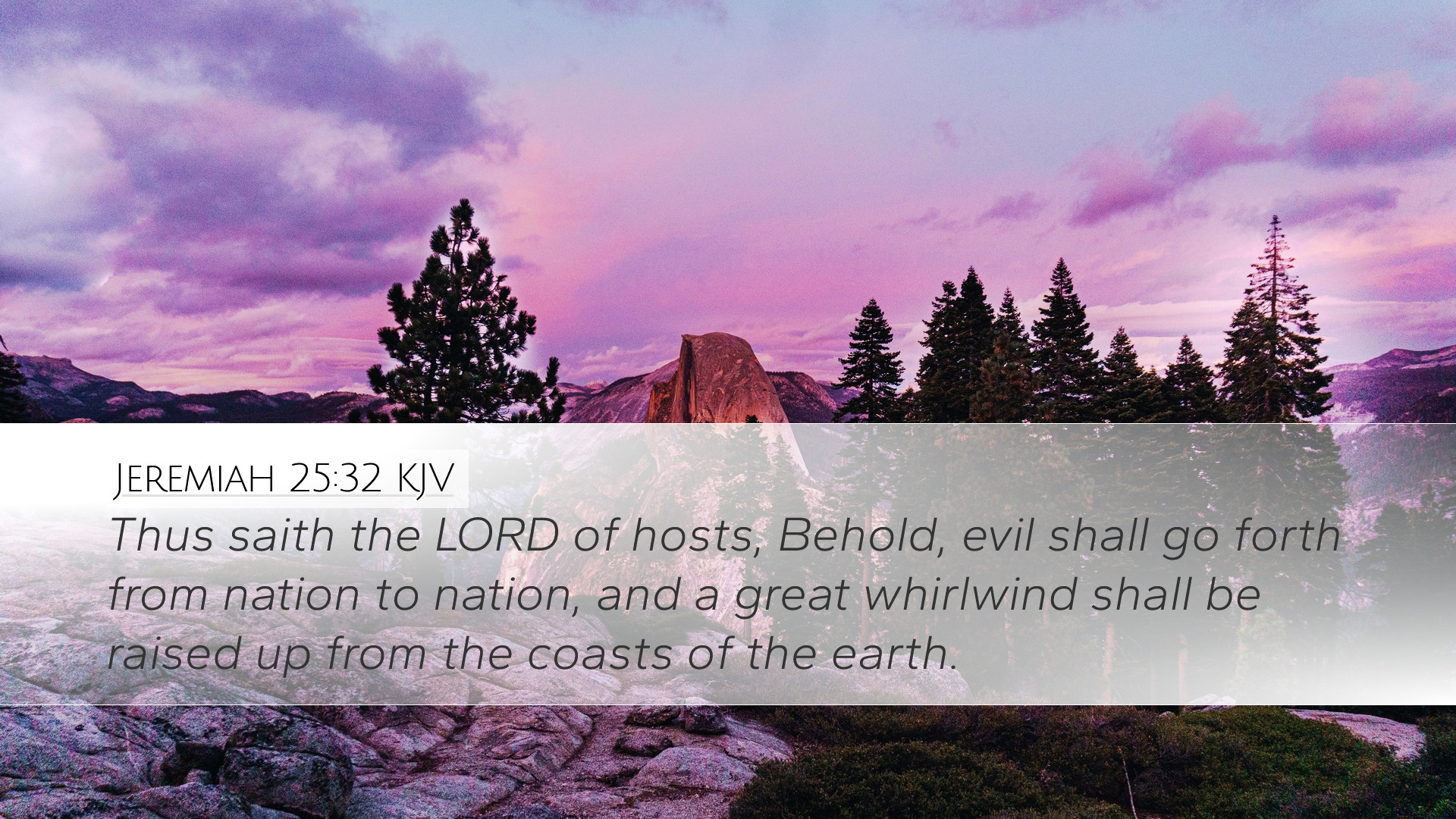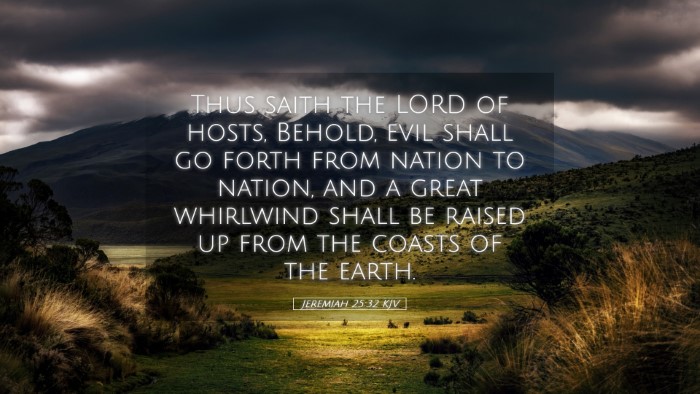Commentary on Jeremiah 25:32
Verse Reference: Jeremiah 25:32
“Thus saith the Lord of hosts, Behold, evil shall go forth from nation to nation, and a great whirlwind shall be raised up from the coasts of the earth.”
Overview
This verse forms part of a larger prophetic context in which God communicates His judgment upon the nations. Jeremiah, as a prophet, delivers a message of impending doom not only to Judah but also to the surrounding nations. This judgment is characterized by the image of a "great whirlwind," possibly symbolizing the overwhelming power and reach of God's judgment.
Theological Themes
- Divine Sovereignty: The assertion of God's control over all nations is paramount. His will does not merely apply to Israel but extends universally. This reinforces the idea that God reigns supreme over all creation.
- Judgment on Nations: The verse illustrates a collective fate of nations marked by evil. The whirlwind signifies both chaos and divine action.
- Warning and Calling to Repentance: God's warnings through Jeremiah serve as invitations for nations to repent. The consequences of ignoring this call are dire, leading ultimately to divine judgment.
Insights from Commentators
Matthew Henry
Henry emphasizes that the passage illustrates the inevitability of God's judgment. He discusses the significance of the "whirlwind," representing not just calamity but the swift execution of God’s plans against wicked nations. According to Henry, the "evil" mentioned denotes both moral decay and catastrophe resulting from divine displeasure. His analysis points out that the message of Jeremiah should awaken nations from their slumber of complacency, reminding them that they too face accountability before God.
Albert Barnes
Barnes provides a detailed examination of the terms used in the passage. He highlights how the use of the term “evil” can be misunderstood; it captures not only moral wrongdoing but also the calamity that proceeds from it. He explains that the "nation to nation" aspect underscores the interconnectedness of the world’s political and moral state. Barnes warns that God’s judgment can sweep across borders, affecting all who reject His righteousness. His commentary serves to prepare the reader for an understanding of the broader implications of divine judgment.
Adam Clarke
Clarke, conversely, delves into the contextual background surrounding Jeremiah's prophecy. He articulates that the "great whirlwind" may be a metaphor for the Babylonian invasion—an event that disrupted the known world markedly. Clarke highlights the sociopolitical factors contributing to the coming judgment and suggests that Jeremiah's role was to proclaim these truths in a time of resistance and disbelief. Clarke stresses the necessity for both individuals and nations to recognize these prophecies as relevant for their spiritual condition.
Practical Applications
- Awareness of Divine Judgment: This passage invites pastors and theologians to emphasize the reality of divine justice in their teachings.
- Call to Holiness: The reiteration of God’s judgment serves as a reminder that ethical living is paramount both on an individual and collective level.
- Encouragement of Repentance: It also provides a framework for fostering a culture of repentance. Understanding the dire consequences of continued disobedience can help lead congregations toward sincere contrition and renewal.
- Social Responsibility: In acknowledging the interconnectedness of nations, theologians and leaders might consider how local reflections of morality impact global relationships and vice versa.
Conclusion
Jeremiah 25:32 serves as a profound reminder of God's sovereignty over the nations and the universality of His judgment. Through the lens of public domain commentaries, we can see the interplay of prophetic warning, divine authority, and human responsibility. As pastors, scholars, and students engage with this text, they are called to recognize its relevance in both personal and communal contexts. Emphasizing God's righteous justice can propel believers towards a life that reflects His holiness and justice in an increasingly chaotic world.


